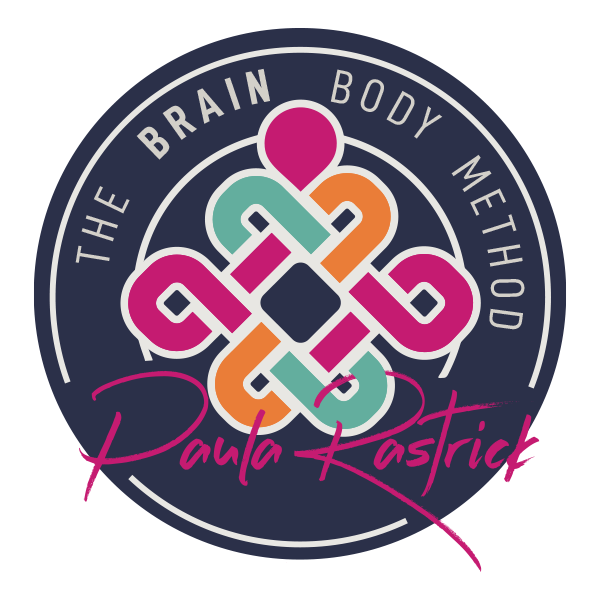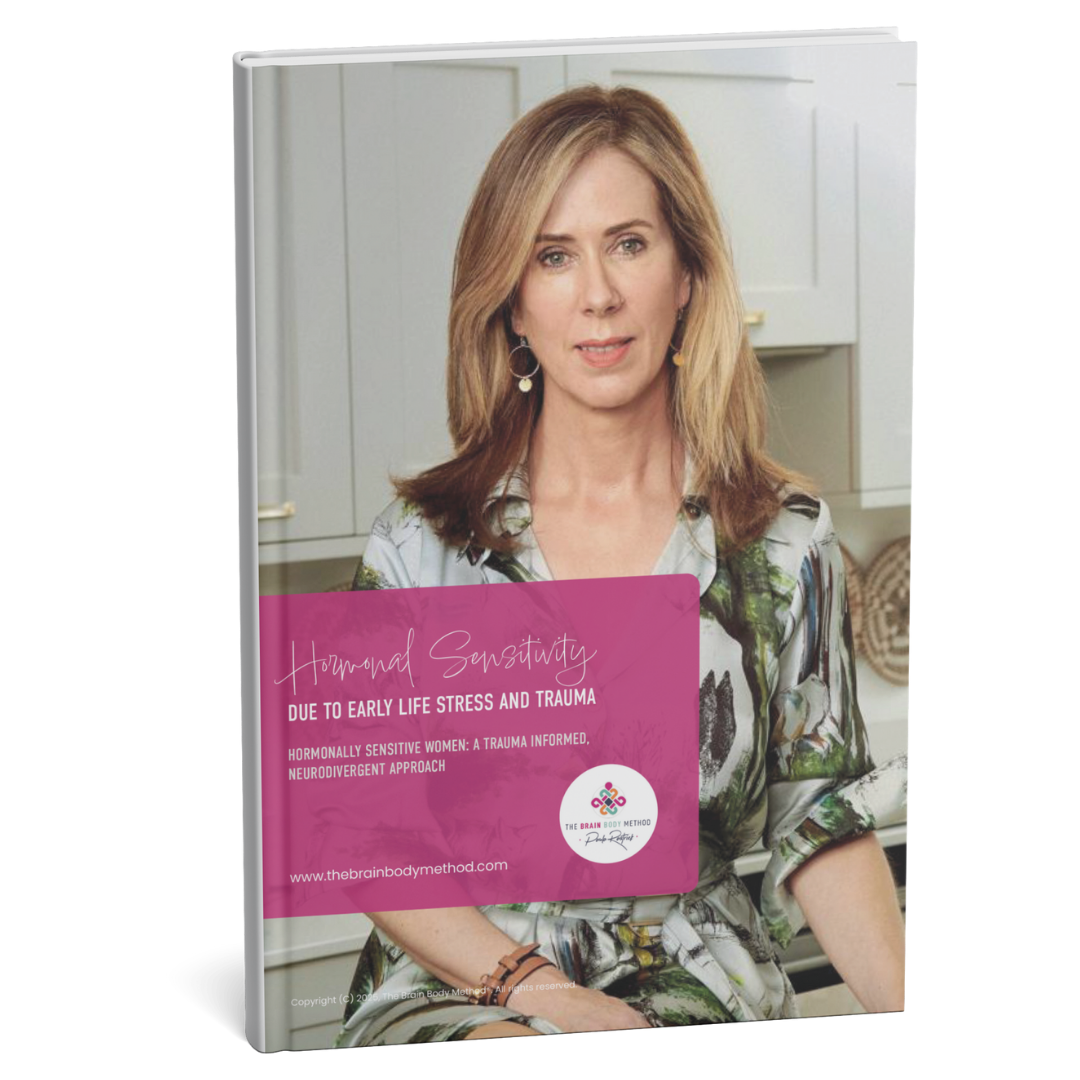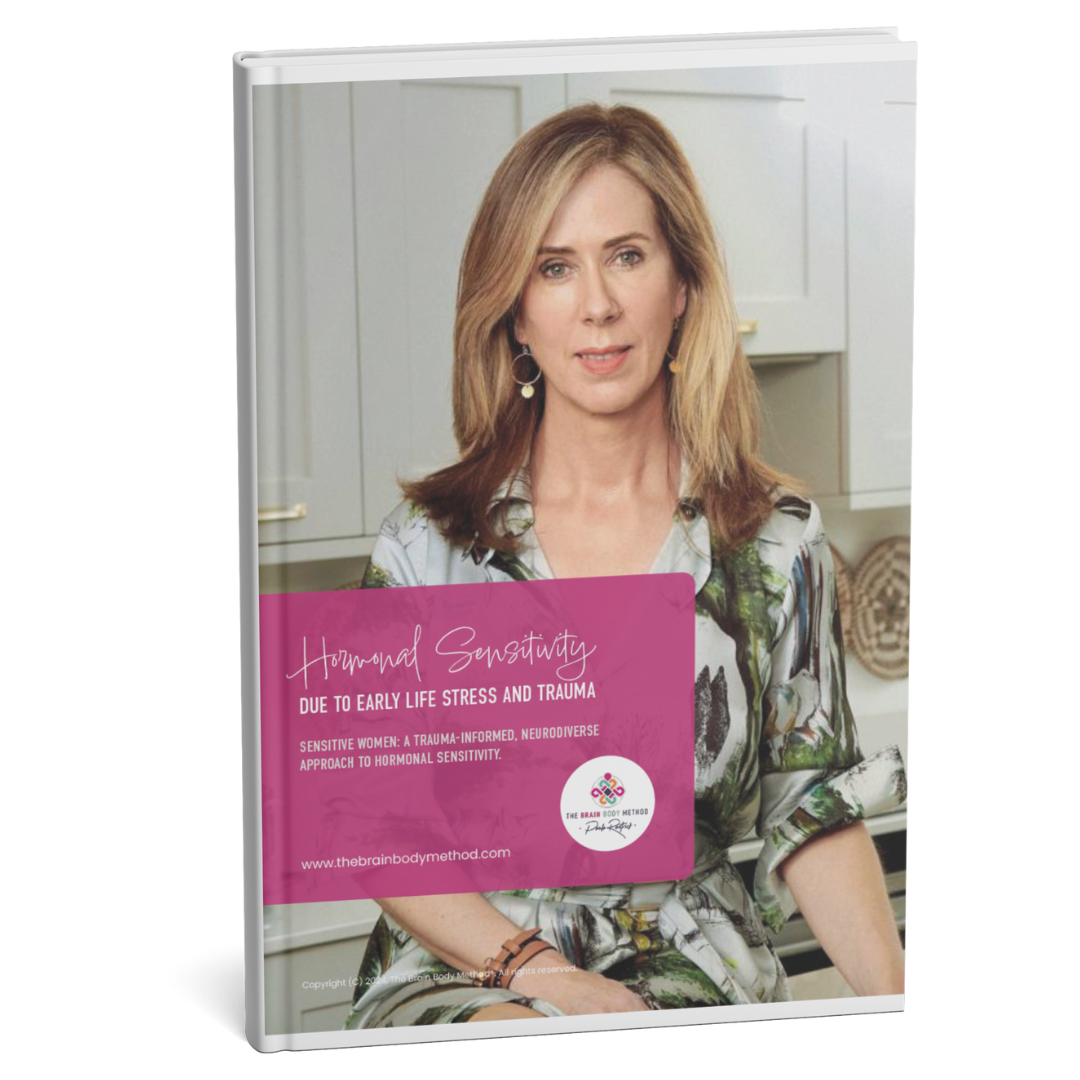

FREE E-BOOK
Hormonal Sensitivity Due To Early Life Stress & Trauma
Our childhood experiences shape our health and wellbeing later in life and we continue to learn how trauma affects midlife health and impacts our menopause symptoms and experiences.
I created my Hormonal Sensitivity Due To Early Life Stress & Trauma E-Book to help you better understand why there are a subset of women who who are more sensitive to both hormonal fluctuations and hormonal shifts that occur over their reproductive lifespan; all from a trauma-informed, neurodiverse approach to hormonal sensitivity.
Enter your details below to get your e-book guide!


In early 2017 I found myself staring at these words on an online advert from a private Menopause Clinic. Looking at the image of a middle-aged woman, completely distressed with head in her hands, I immediately self-identified and felt completely seen and heard.
According to this well renowned Menopause Specialist, my increasing feelings of anxiety, panic, irritability, coupled with a rapid heartbeat, inability to concentrate, insomnia, loss of interest in life, feeling unhappy and
depressed, extreme fatigue and complete lack of sex drive were due to perimenopause and my decreasing hormone levels.
Up until this point, I knew nothing about perimenopause. This was early 2017 and I had just turned 45. There wasn’t the level of awareness or education that exists now. I attributed my symptoms to physical and emotional burnout due to a very challenging period of prolonged stress. However, the advert described me so perfectly and the offer of a quick fix to alleviate my symptoms by simply topping up my hormones seemed like the perfect solution.
This HRT prescription was the beginning of a journey that left me further unravelling and spiralling both mentally and physically to my very lowest ebb. I felt totally helpless and in a very dark place which took me over two years to recover from. Since then, I have dedicated the past three years to extensively researching, joining the dots, speaking to other women. Going backwards delving into the science, taking time to process my own childhood trauma allowed me to write my evidence-based book ‘Sensitive Women: A Trauma Informed, Neurodiverse Approach to Hormonal Sensitivity’.
Why at the age of 45 did my life become so overwhelming and yet previously I had always coped and functioned with extremely high levels of stress and anxiety? Up until this pivotal point I had faced multiple major life challenges and adversities in childhood. Was my severe physical and emotional burnout simply as a result of my hormone fluctuations?
The answer is no.
It has started to emerge that there are a subset of women who have been identified as being more sensitive to both hormonal fluctuations and hormonal shifts that occur over the reproductive lifespan. These links start at puberty and up to and including the menopause transition. This is now being referred to in the literature as “The Hormonal Sensitivity Hypothesis”.
These women appear to be more vulnerable and sensitive to adverse and negative symptoms related to hormonal shifts affecting cognitive, psychological, physical and sexual symptoms during hormonal changes.
Levels of hormones (hormone deficiency) do not appear to be the primary mechanism and this therefore requires a wider biopsychosocial lens in order to start to answer the question of why some women, like me, are more hormonally sensitive.
Cognitive, reproductive mood disorders are not simply caused by the absolute levels of reproductive hormones oestrogen, progesterone or testosterone. Instead, some women actually have an increased nervous system sensitivity to changes in these reproductive steroid hormones. These women, like me, identify with Complex Trauma, ADHD, AuDHD, Highly Sensitive People and Autism Spectrum Disorder.
Click here to find out more about Hormonally Sensitive Women.

